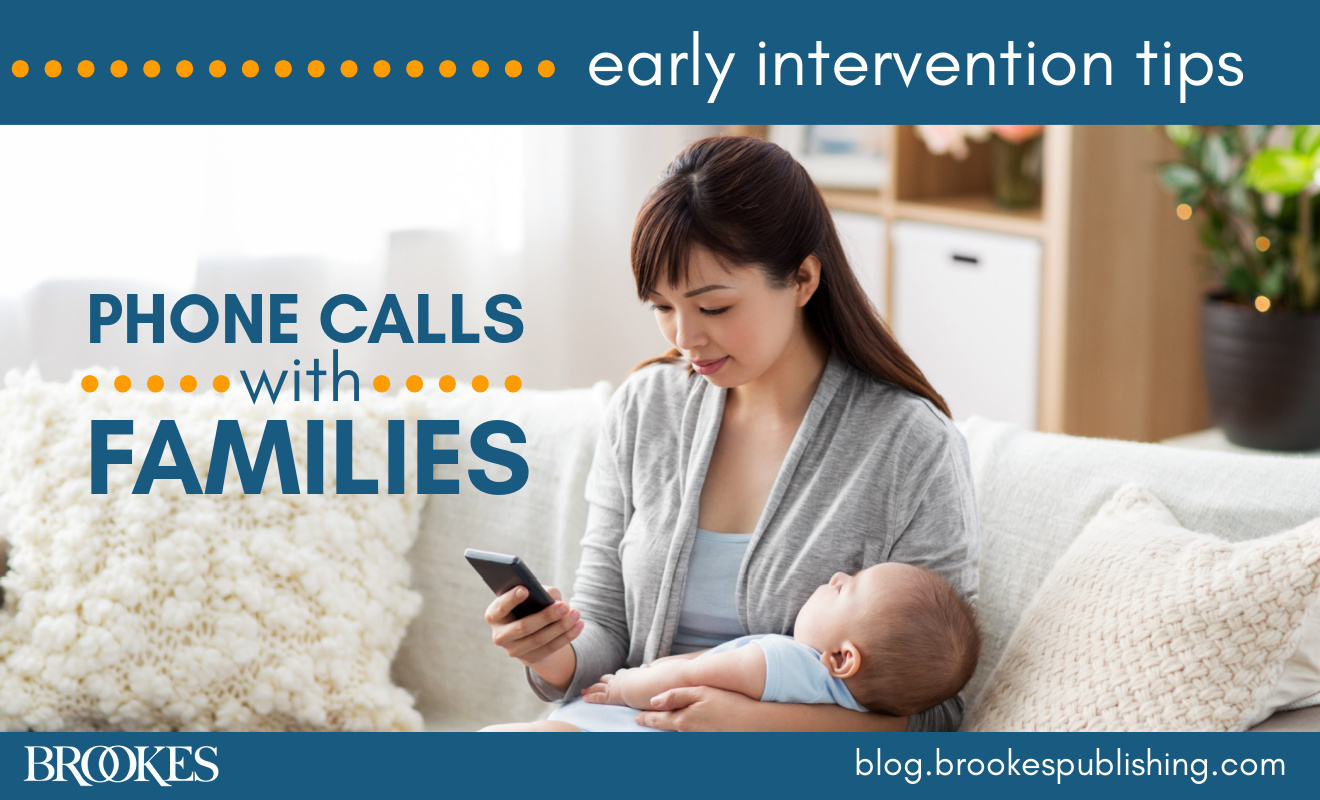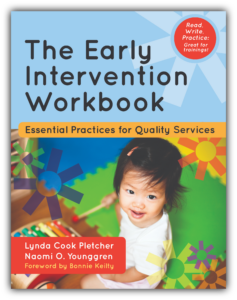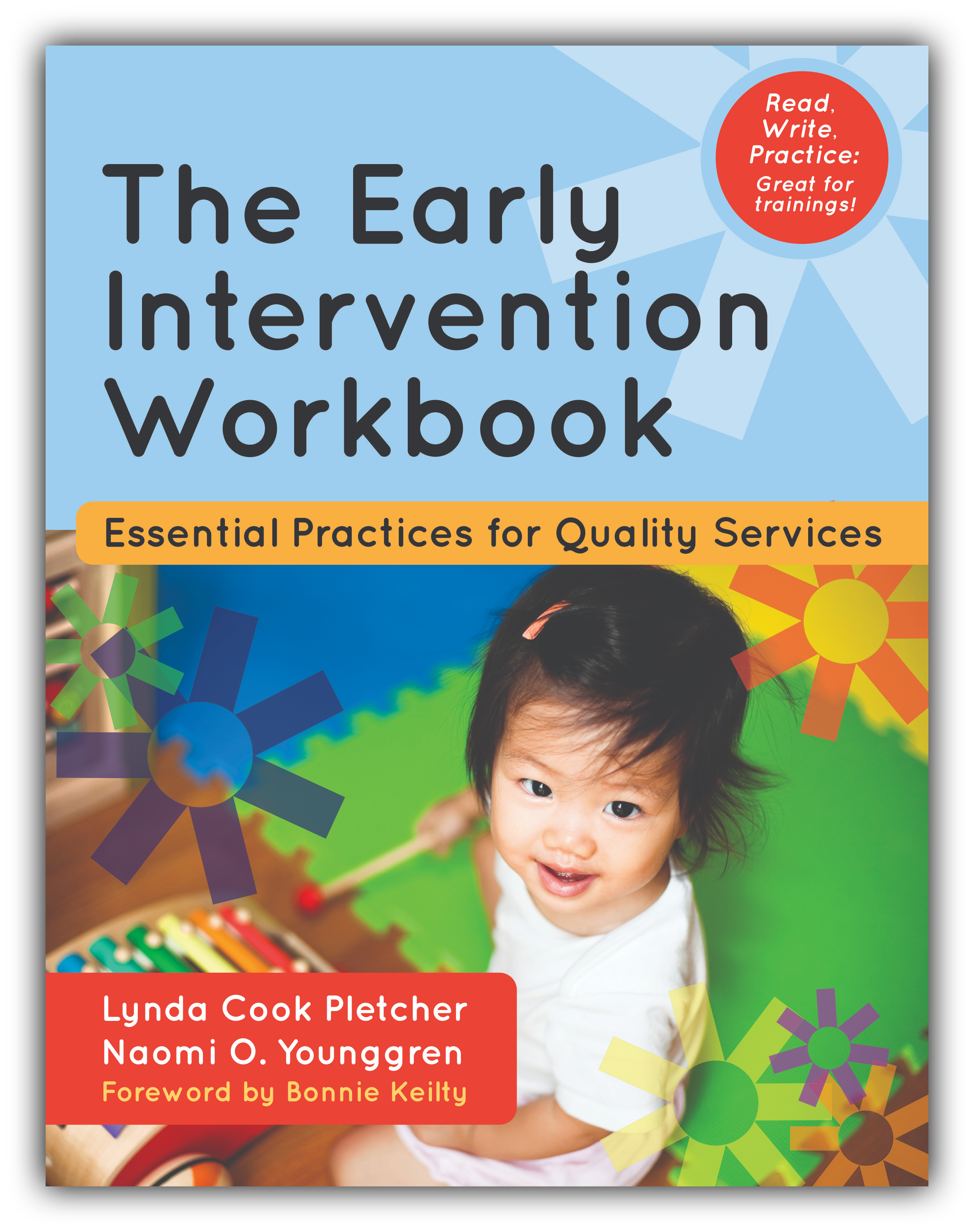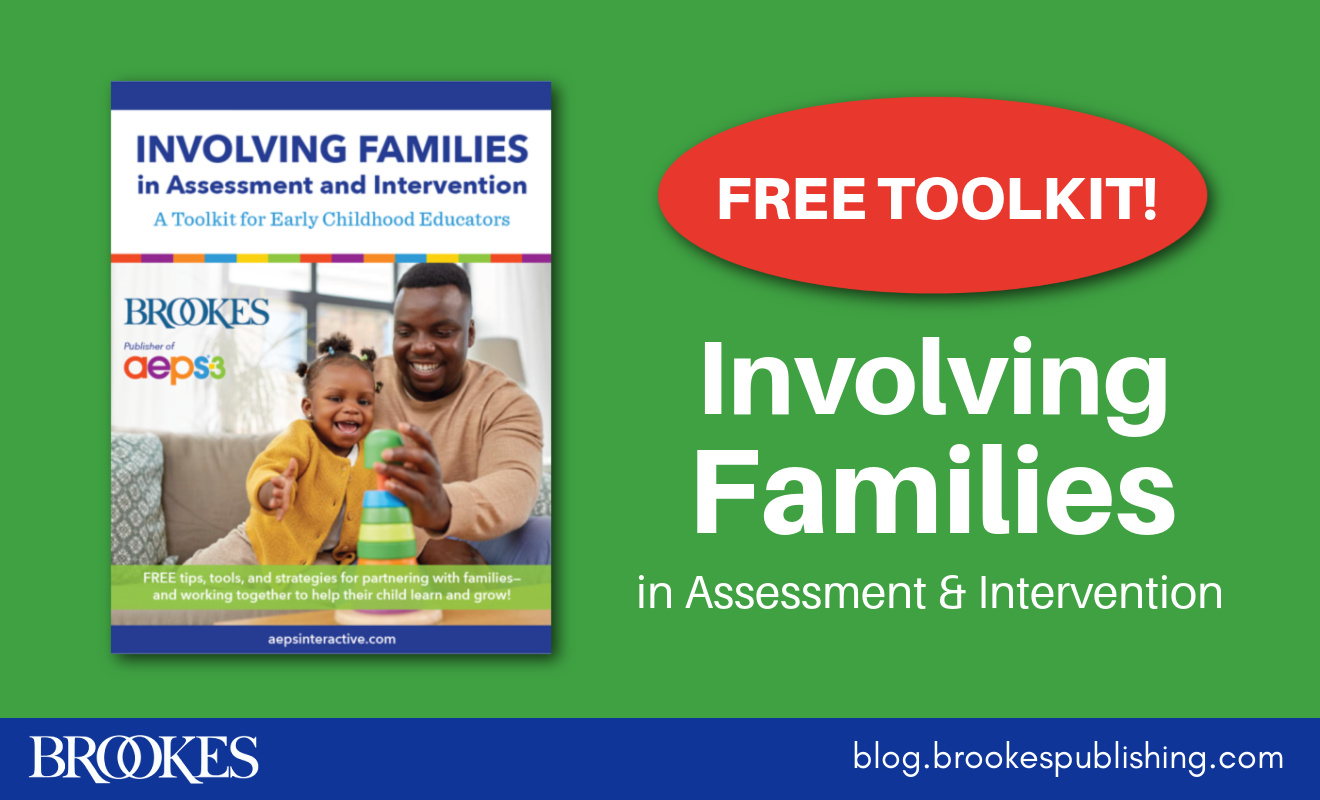Early Intervention 101: Tips for a Great First Phone Call with Families
October 26, 2023
When the family of a young child receives a referral to an early intervention program, they may experience a wide range of emotions: fear, uncertainty, relief, anxiety, or a little bit of everything. And they’re sure to have questions about what comes next and what the family’s early intervention journey will look like.
Early interventionists can put families at ease and start the journey off on the right foot with a great first phone call. Excerpted and adapted from The Early Intervention Workbook by Lynda Cook Pletcher, & Naomi O. Younggren, this article shares some basic yet essential steps for making your initial phone calls with families of young children both positive and effective.
Before the call
Remind yourself that the first contact with a family is of utmost importance. It sets the stage for how the family views the early intervention program and their role and relationship with the providers. Prepare for the phone call ahead of time by reviewing all available information on the family and jotting down any specific questions you need to ask.
During the call
During the phone call, take time to listen to family concerns, explain the program, and ask and answer questions. Here are some steps to follow to make the first phone call a success.
- Introduce yourself and the program you work for.
- Confirm that you are talking to the parents/guardian.
- Inquire if the family is aware that a referral was made on behalf of the child.
- Ask the family if they have questions or concerns about their child’s development.
- Explain that you are calling to see if they are interested in following up with the referral and, if so, to set up an initial visit.
- Share some brief information about what early intervention is and check if the family is interested in early intervention.
- If the family is interested, share the purpose of the initial visit. Include a description of what the family can expect and how long it will take. Let the family know that they can choose what they would like to share and who they would like to be there.
- If the family is not interested, thank them for their time and invite them to contact early intervention in the future if they have any concerns or questions.
- If appropriate, inquire about the need for interpreters.
- Set up a time with the family that is convenient for both you and them. Consider the child’s sleeping, waking, and feeding schedules and if both parents and other family members may want to participate.
- Give the name of the person(s) who will be making the initial visit.
- Provide contact information if the family should need to reschedule.
- Get directions to their home or an agreed-upon location for the initial visit as needed.
- Thank the family for their time and let them know that you are looking forward to meeting them in person. Encourage them to jot down any questions they think of to address during the first visit.
To bring this process to life, here’s an example of what a first phone call might sound like:
Professional: Hi, my name is Neal Batton. I am calling from Early Intervention. Is this Mrs. Novo?
Parent: Yes.
Professional: Oh, good. I am calling about a referral we received from Dr. Wellborn regarding your son Luke. Are you familiar with this?
Parent: Yes, he said that he was concerned about Luke’s speech.
Professional: Yes, that is the information we received in the referral. Did the doctor tell you anything about our program?
Parent: Well, not really; just that you help children who are behind.
Professional: Yes, that is a big part of our program. I would like to understand what questions or concerns you have about Luke?
Parent: I really was not concerned until the doctor explained to me that Luke is not talking like other 2-year-olds.
Professional: He is not talking like other 2-year-olds?
Parent: No, he mostly just points or takes us to what he wants. He can say a few words and jabbers, but it is hard to make out what he is saying.
Professional: Thank you for sharing that. I understand that Luke has a few words but uses more pointing or gestures.
Parent: Yes, that is correct.
Professional: As part of the early intervention program, we work with families to help determine if children are behind in their development, and if so, we work together to help children make progress. One of the first things we do is meet with you and Luke and get a better understanding of the things he can do and if he has any needs. We do this by asking you questions and watching Luke play with the things he likes. The visit usually takes about an hour. Is this something you’re interested in?
Parent: Yes, I guess so.
Professional: Great, we typically meet with families at their home or a place in your community that you and Luke like. We find that children do best meeting us in places that are comfortable and familiar to them.
Parent: You can come to my home?
Professional: Yes. Would that work for you?
Parent: That is better because our second car is in the shop.
Professional: Okay. Let’s find a time that is good for you and Luke. Do you have any time later this week?
Parent: Would Wednesday morning work?
Professional: Yes, that would be great. How about 10:00?
After the call
Following up with the family soon after the first phone call is an important part of the process. Send them a reminder, including the program name, contact information, the name of the person making the initial visit, and the date, time, and duration of the scheduled visit. Include a program brochure or other information about early intervention. Keep in mind, though, that family members have different preferences for how they like to receive information. Offer multiple ways of sharing important information, such as describing, providing written materials, or even sharing short video clips. Telling someone something only one time or simply giving out a brochure does not necessarily mean they will understand.
You’ll also want to compile information received from the referral so the family doesn’t have to repeat information already shared. Some of the information you have may need to be confirmed with the family; don’t assume the reason for a referral from a doctor matches the precise concerns or questions of the family.
***
The overall purpose of the first phone call and other early contacts is for the family to learn what early intervention is all about, including what it can do for their child and family, and to understand their critical role in the early intervention process. Equally important is establishing a respectful partnership that will continue to grow over time. Keep these tips on hand to guide your first phone calls with families—and for a whole workbook on effective early intervention, pick up the book that inspired today’s post!






Write a Comment
Your email address will not be published. Required fields are marked *
Post a Comment